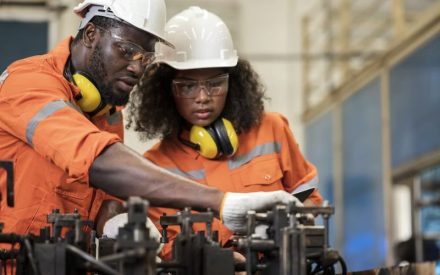Understanding Diversity in Manufacturing:
Diversity in the manufacturing sector encompasses differences in race, gender, age, ethnicity, sexual orientation, and more. Embracing diversity is not only a moral obligation but a strategic move that amplifies the adaptability and competitiveness of organizations. By bringing together individuals with varied backgrounds, experiences, and perspectives, manufacturing firms can better navigate the complexities of the global market.
Benefits of Diversity and Inclusion:
Innovation and Creativity: A diverse workforce introduces a wide range of viewpoints, fueling innovation and creative problem-solving. In the manufacturing sector, this can lead to the development of groundbreaking technologies, processes, and products.
Enhanced Productivity: Diverse teams are often more productive, leveraging the strengths of each team member. In a manufacturing setting, this can translate into improved efficiency, reduced errors, and faster production cycles.
Market Expansion: A diverse workforce can help companies better understand and connect with diverse consumer markets. This is particularly crucial in the manufacturing sector, where products often have a global reach.
Talent Acquisition and Retention: Fostering an inclusive workplace culture attracts top talent and promotes employee retention. Manufacturing firms benefit from a skilled and committed workforce, reducing recruitment costs and enhancing organizational stability.
Challenges in Achieving Diversity and Inclusion:
Despite the evident advantages, achieving diversity and inclusion in the manufacturing industry is not without challenges. Common obstacles include:
Stereotypes and Bias: Stereotypes regarding gender, race, or other characteristics can hinder fair treatment and equal opportunities. Overcoming unconscious biases is crucial in promoting diversity.
Limited Representation: Historically, manufacturing has been male-dominated. Encouraging more women and underrepresented groups to pursue careers in the sector requires intentional efforts.
Cultural Resistance: Some employees may resist change, perceiving diversity initiatives as a threat. Clear communication and education are essential to address these concerns.
Strategies for Promoting Diversity and Inclusion:
Leadership Commitment: Leadership plays a pivotal role in driving diversity and inclusion. By visibly supporting and championing these initiatives, leaders set the tone for the entire organization.
Inclusive Policies and Practices: Develop and implement policies that ensure fairness in recruitment, promotion, and compensation. Inclusive practices, such as flexible work arrangements, accommodate diverse needs.
Diverse Recruitment: Actively seek out diverse candidates when hiring. Collaborate with educational institutions, industry associations, and community organizations to broaden the talent pool.
Conclusion:
In conclusion, fostering a culture of Diversity and Inclusion in the manufacturing workplace is not just a moral imperative but a strategic necessity for sustained success. As we navigate the complex landscape of modern industry, it becomes evident that embracing Diversity and Inclusion is a catalyst for innovation, employee engagement, and overall organizational resilience. Companies that actively promote Diversity and Inclusion stand to benefit from a multitude of perspectives, experiences, and talents, which can drive creativity and problem-solving. By prioritizing Diversity and Inclusion initiatives, organizations can build robust teams that are reflective of the diverse global marketplace.
JRG Partners has placed several manufacturing candidates with top manufacturing companies all across the US, we have recently placed a “Manufacturing Project Manager(retained search)” with a Defense Goods manufacturing company in Detroit, Michigan. As we navigate the ever-evolving landscape, our commitment remains steadfast in providing tailored solutions that elevate workforce management, drive productivity, and fortify manufacturing enterprises for the challenges and opportunities of tomorrow.
